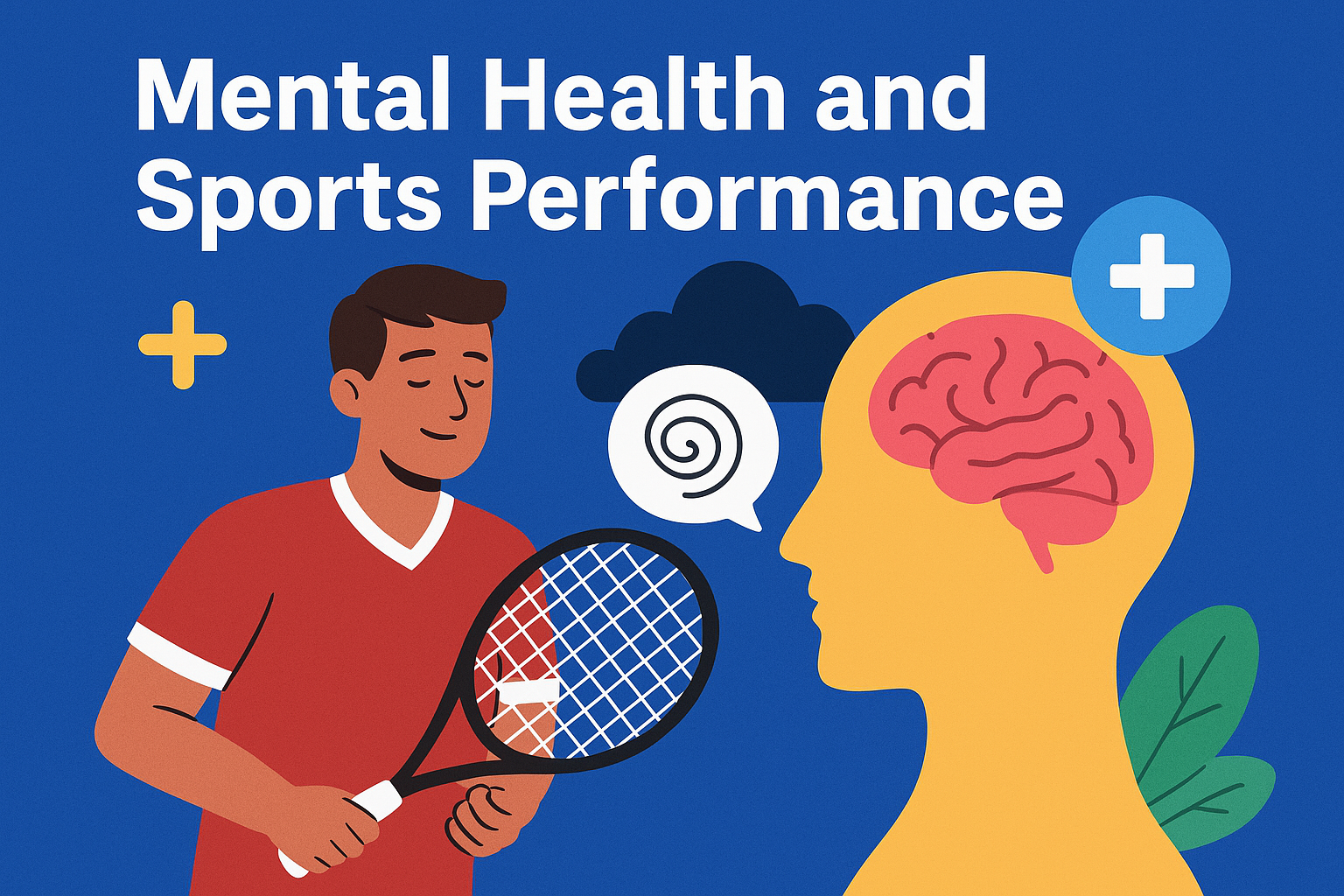Mental Health and Sports Performance

Mental Health and Sports Performance, Sports have long been celebrated as a way to build physical strength, develop discipline, and foster teamwork. However, in recent years, the spotlight has shifted to another critical factor: mental health. Athletes at every level—whether professional, amateur, or recreational—are realizing that peak performance is not just about physical training but also about mental well-being. Read also Mental Health And Sports Performance: The Hidden Key to Athletic Success
This article explores the relationship between mental health and sports performance, shedding light on how psychological resilience, emotional balance, and stress management can elevate athletes’ abilities.
The Importance of Mental Health in Sports
Mental health refers to our emotional, psychological, and social well-being. In sports, it influences how athletes think, feel, and behave under pressure. Unlike physical fitness, which can be easily measured by strength or endurance, mental health often requires deeper self-awareness and professional support.
For athletes, good mental health translates to:
Improved focus and decision-making
Better stress and anxiety management
Increased confidence and motivation
Faster recovery from setbacks
On the other hand, poor mental health can result in burnout, decreased performance, and even early retirement from sports careers.
Common Mental Health Challenges Athletes Face
Performance Anxiety – The fear of failure or underperforming in front of fans and coaches can lead to panic attacks or shaky confidence.
Depression – Athletes may feel isolated, especially after injuries or retirement, leading to mood disorders.
Burnout – Excessive training without adequate rest can lead to physical and emotional exhaustion.
Eating Disorders – Pressure to maintain a certain body type may trigger unhealthy eating habits.
Substance Abuse – Some athletes resort to drugs or alcohol to cope with stress, leading to long-term health risks.
How Mental Health Affects Sports Performance-Mental Health and Sports Performance
Focus and Concentration – Athletes with stable mental health are more likely to stay composed during high-pressure moments.
Decision Making – Stress and anxiety can cloud judgment, while mental clarity enhances tactical performance.
Consistency – A mentally resilient athlete performs steadily over time rather than being affected by one bad game.
Recovery – Positive mental health accelerates physical recovery by reducing stress-related hormones that slow healing.
Strategies for Improving Mental Health in Athletes
1. Sports Psychology
Working with sports psychologists helps athletes build mental resilience, manage anxiety, and stay motivated.
2. Mindfulness and Meditation
Breathing exercises, yoga, and meditation improve focus while reducing anxiety.
3. Balanced Training Schedules
Rest is just as important as training. Athletes should have recovery days to prevent burnout.
4. Open Conversations
Encouraging athletes to speak about their struggles helps break the stigma around mental health.
5. Professional Support
Access to therapists, counselors, and support groups ensures athletes don’t suffer in silence.
Famous Athletes Who Opened Up About Mental Health
Michael Phelps – The Olympic swimmer battled depression but became an advocate for mental health awareness.
Naomi Osaka – The tennis star withdrew from tournaments to prioritize her mental well-being.
Kevin Love – The NBA player openly shared his struggles with anxiety and panic attacks.
Their stories show that even world-class athletes are not immune to mental health challenges—and prioritizing well-being can lead to stronger comebacks.
The Role of Coaches and Organizations
Sports organizations must prioritize athletes’ mental health just as much as physical fitness. This includes:
Providing access to mental health professionals
Encouraging breaks and recovery periods
Educating athletes about emotional well-being
Creating safe environments where athletes can share struggles without fear of judgment
Mental Health Beyond Professional Sports
While much attention is given to elite athletes, recreational players and students also face challenges. Stress from academics, social pressure, and competition can affect performance. Schools and clubs must emphasize both physical and mental training.
Conclusion
The connection between mental health and sports performance is undeniable. To excel, athletes need more than just muscles and endurance—they need clarity, confidence, and emotional strength. By breaking the stigma around mental health, promoting open discussions, and offering professional support, sports can become a platform for holistic development.
The future of athletics lies not only in stronger bodies but also in healthier minds.

Comments are closed, but trackbacks and pingbacks are open.